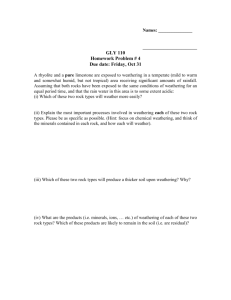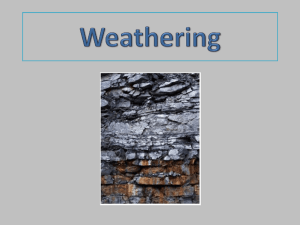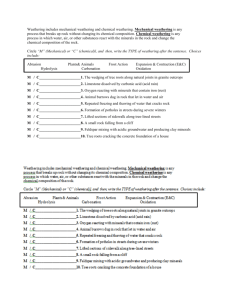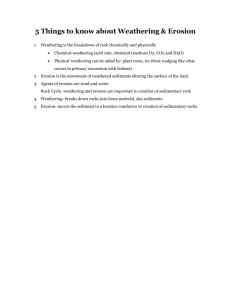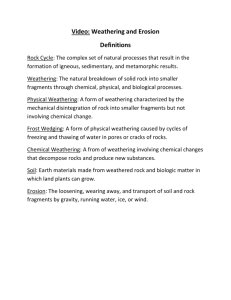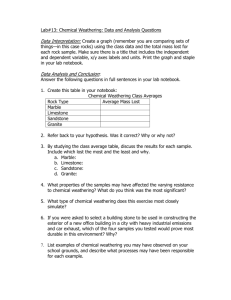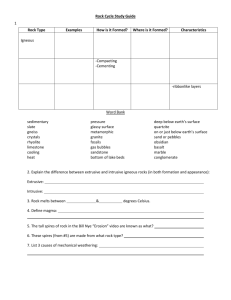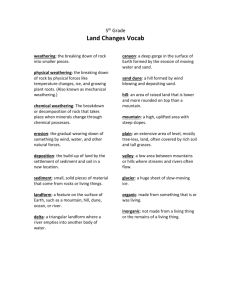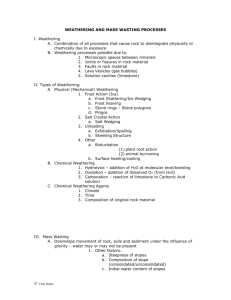Name: : ______ Earth Science Mr. Herman Exeter SHS Chapter 5.1
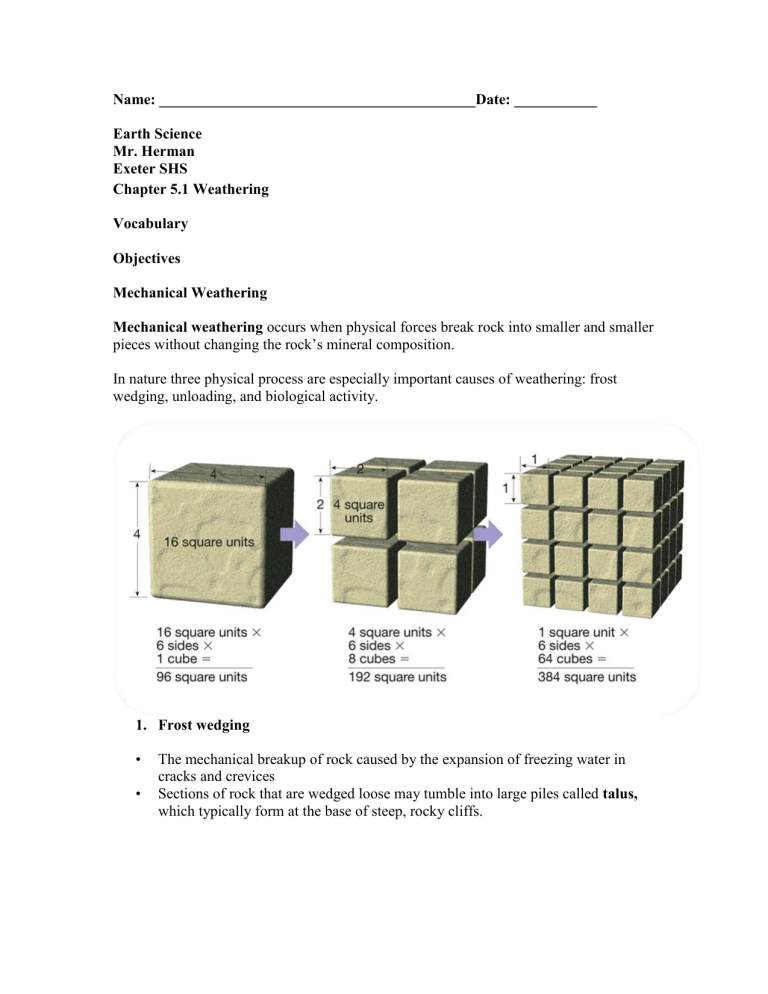
Name: __________________________________________Date: ___________
Earth Science
Mr. Herman
Exeter SHS
Chapter 5.1 Weathering
Vocabulary
Objectives
Mechanical Weathering
Mechanical weathering occurs when physical forces break rock into smaller and smaller pieces without changing the rock’s mineral composition.
In nature three physical process are especially important causes of weathering: frost wedging, unloading, and biological activity.
1.
Frost wedging
•
The mechanical breakup of rock caused by the expansion of freezing water in cracks and crevices
•
Sections of rock that are wedged loose may tumble into large piles called talus, which typically form at the base of steep, rocky cliffs.
2.
Unloading
Reduced pressure on igneous rock causes it to expand and allows slabs of outer rock to break off in layers in a process called exfoliation.
3.
Biological activity
The activity of organisms, including plants, burrowing animals, and humans, can also cause mechanical weathering.
Chemical Weathering
Chemical weathering is the transformation of rock into one or more new compounds.
Chemical Weathering of Granite
Weathering of potassium feldspar produces clay minerals, soluble salt (potassium bicarbonate), and silica in solution.
Quartz remains substantially unaltered.
Weathering of Silicate Minerals
Produces insoluble iron oxides and clay minerals
Spheroidal Weathering
• Causes the corners and edges of rock to be more rounded
Rate of Weathering
Two other factors affecting the rate of weathering are rock characteristics and climate.
1.
Rock characteristics
Mineral composition and solubility
Physical features such as joints
2.
Climate
Temperature and moisture are the most crucial factors.
Chemical weathering is most effective in areas with high temperatures and abundant moisture.
Differential Weathering
Caused by variations in composition
Creates unusual and spectacular rock formations and landforms
